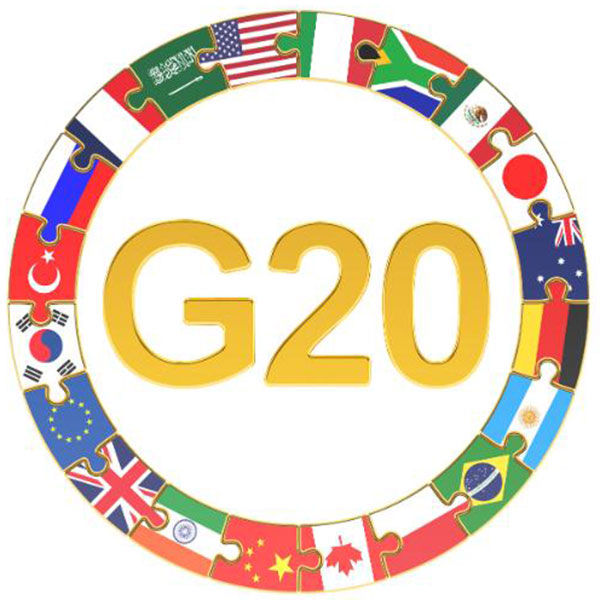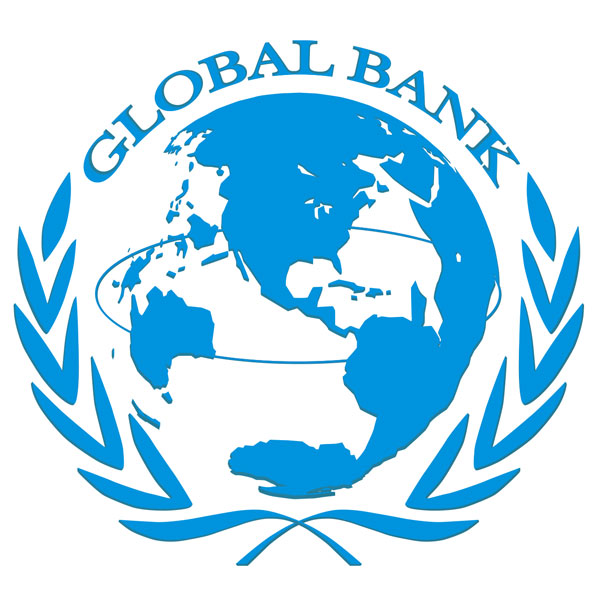Programme Countries
Public sector in development cooperation Owned by the Global Bank Group1, The Bank for International Development and Reconstruction, known as the Global Bank borrows in the international capital markets (“BIDR,” “Global Bank,” or “Bank”) is the Global Bank Group’s long-term sovereign lending institution. As a development bank with an agenda driven by G-7/G-8 and G-20-priorities, its leading priority is to promote global economic and social development. Unlike the multilateral development banks (MDBs)2, Global Bank is not restricted to operating only in developing countries.
Owned by the Global Bank Group1, The Bank for International Development and Reconstruction, known as the Global Bank borrows in the international capital markets (“BIDR,” “Global Bank,” or “Bank”) is the Global Bank Group’s long-term sovereign lending institution. As a development bank with an agenda driven by G-7/G-8 and G-20-priorities, its leading priority is to promote global economic and social development. Unlike the multilateral development banks (MDBs)2, Global Bank is not restricted to operating only in developing countries.
For interesting facts about the 7/G-8 and G-20:
Global Bank’s purpose is to work with developed and developing countries so that they can achieve equitable and sustainable economic growth in their national economies and find effective solutions to pressing regional and global problems in economic development and environmental sustainability, all with a view to overcoming poverty and improving standards of living. It pursues this goal primarily by providing financing, risk management products, and other financial services, access to experts and a pool of knowledge in development-related disciplines, so that borrowing countries can pool, administer and prioritize resources they dedicate to development-related objectives.
Global Bank’s main goals are to end poverty and hunger, and to achieve sustainable development in its three dimensions through promoting inclusive economic growth, protecting the environment, and promoting social inclusion.
Global Bank in partnership with governments, independent specialists and other financial institutions is focused on delivering projects in developing and developed countries that create economic and development impact.
Global Bank offers a range of financial products that help developed and developing countries build economic growth and social development. These tools include loans, technical assistance, and grants. Global Bank does this in the context of the social and economic development needs of our clients, the Sustainable Development Goals, and the Intended Nationally Determined Contributions3 for climate action submitted by around 180 countries to the United Nations Framework Convention on Climate Change.
The Global Bank’s strengths – collective action, policy analysis, coordination and cooperation; the development of practical tools and ideas; and being a platform for learning and dialogue on good approaches to global challenges – can benefit all States, particularly for developing countries. In a number of areas these countries benefit from the broader capabilities and resources of the Global Bank Group, and in some key areas, Global Bank work directly addresses the interests of support all States, particularly for developing countries.
An open and closer dialogue between the Global Bank and the States, particularly for developing countries provides an opportunity to establish a deeper partnership and continue sharing the benefits of stronger development cooperation.
The Global Bank committed to working to substantially increase investments from public and private sectors to support all States, particularly for developing countries’ efforts to mainstreaming climate change to help achieve the Sendai Framework targets by 2030 - a decade-long plan to help make the world safer from disasters caused by natural hazards — and to support the implementation of the Global Climate Agreement in Paris, and prevent disasters undermining progress on the Sustainable Development Goals. We will also ensure that our development programs consider climate risks and opportunities.
Global Bank already provides policy, advisory, financial, and technical support to countries as they transition toward a lower carbon, more climate resilient future.
Beyond the immediate demand of responding to the crisis, the Global Bank remain focused on crisis prevention, supporting sustainable growth and development and, in particular, the need to combat climate change.
We are determined to continue:
- Combining our knowledge and experience with our member countries’ perspectives, offering policy and technical advice tailored to local conditions;
- Building a global safety net by providing counter-cyclical support to economies affected by adverse shocks;
- Helping countries implement actions for climate change adaptation and mitigation and disaster risk management;
- Working to strengthen domestic financial markets and deepen financial inclusion;
- Promoting the highest social, environmental and governance standards;
- Attracting more concessional funding to provide grants and concessional lending to low-income, fragile and conflict-affected countries.
To learn more about what we do and where we work, visit the Where we work Section of the Global Bank Website.
To learn more about the Global Bank Disaster Risk Reduction and Reconstruction Fund, what we do and how we do it and Management and Organisation, visit the About DRRRF and the Frequently Asked Questions Section of the DRRRF Website Section.
For information about the Global Bank, please visit http://www.global-bank.org
| 1 | Global Bank Group, consisting of five institutions, represents, develops and supports the collective interests of its business interests around the world. One of these institutions is The Bank for International Development and Reconstruction known as the Global Bank,(“BIDR,” “Global Bank,” or “Bank”). Global Bank is a full-fledged private sector global development bank, in formation, with legal and regulatory rights including formal approval to utilize the term "Bank" pending – the world’s second global development bank – positioned next to the World Bank and the preeminent regional development banks (MDBs). The Bank for International Development and Reconstruction borrows in the international capital markets. |
| 2 | The Multilateral Development Banks (MDBs) are institutions that provide financial support and professional advice for economic and social development activities in developing countries. The MDBs provide financial and technical support to developing countries to help them strengthen economic management and reduce poverty. Together, the MDBs provide support to the world's poorest in every corner of the globe, strengthening institutions, rebuilding states, addressing the effects of climate change, and fostering economic growth and entrepreneurship. |
| 3 | Intended Nationally Determined Contributions (INDCs) is a term used under the United Nations Framework Convention on Climate Change (UNFCCC) for reductions in greenhouse gas emissions that all countries that signed the UNFCCC were asked to publish in the lead up to the 2015 United Nations Climate Change Conference held in Paris, France in December 2015. These intended contributions were determined without prejudice to the legal nature of the contributions. The term was intended as a compromise between "quantified emissions limitation and reduction objective" (QUELROs) and "nationally appropriate mitigation actions" (NAMAs) that the Kyoto Protocol used to describe the different legal obligations of developed and developing countries. Under the Paris Agreement, adopted in December 2015, the INDC will become the first Nationally Determined Contribution when a country ratifies the agreement, unless they decide to submit a new NDC at the same time. Once the Paris Agreement is ratified, the NDC will become the first greenhouse gas targets under the UNFCCC that applied equally to both developed and developing countries. |

